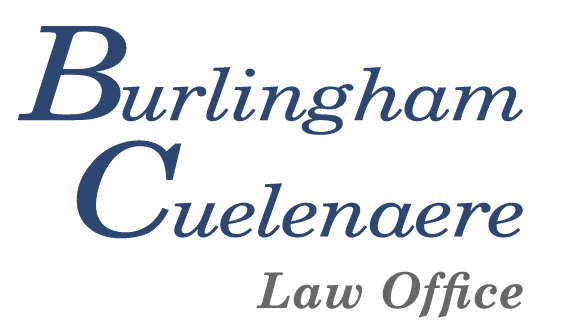Civil litigation can be time-consuming and lengthy. It is important to have a lawyer who works to keep the case moving forward. Cases do not always move quickly, but it is still important to keep them moving in the right direction. It is also a good idea to be open to the idea of settling civil litigation matters out of court. Statistics show that most civil litigation cases do not make it all the way through the court process to a trial; rather, many of them settle out of court. This can be a better outcome than going to trial a lot of civil litigation cases. When you settle a civil litigation matter out of court, you have the opportunity to have control over the terms of settlement rather than leaving it up to a judge or jury. You have peace of mind knowing that the civil case is settled and over with on terms that you can accept.
However, it is not always possible to settle civil cases out of court. Sometimes the parties are too far apart because they see the matter very differently, or because one party is being unreasonable. In those circumstances, it is important to have a lawyer who understands how to run a trial and can do it without charging more in legal fees and other costs than the trial is worth to you. At Burlingham Cuelenaere, we can do that.
Sometimes in civil litigation cases it is necessary to get an expert to help you by giving evidence on a certain issue: for example, to put a dollar value on losses due to an injury, or damage to property, or to prepare a report on the value of real estate or goods in dispute. Experts can help by giving their unbiased opinion on specific matters, which often helps the parties come to an agreement, or helps the court make a decision.
Whether you need to start civil litigation against someone, or someone has started civil litigation against you, we can help you. Call or email us at the contact information on this website and set up a consultation.
Breach of Contract
Much of civil litigation falls into two categories: contract and tort. Contract litigation is usually based on an agreement between two or more persons: a job, construction of a home, a purchase and sale, etc. If one of the people involved in the agreement acts in a way that breaches the agreement, there could be litigation to rectify the situation and compensate the other person.
Negligence and personal injury
Negligence cases, as opposed to contract cases, usually arise when someone has been negligent, or is accused of being negligent; they may not have breached any agreement, but there is still something they ought to have done, or something they were not supposed to do. It could be that negligence causes someone to slip on an icy walkway, or to receive poor medical treatment, or to buy a home without knowing about hidden problems with it, etc. In cases like these, there could be litigation to decide whether there was negligence, and if so, what compensation a party should receive.
Estate disputes
If it is unfortunate when it happens, but there are many different types of estate disputes. Sometimes a person dies leaving a will that is unclear or contains a mistake, or there are questions about whether the will is valid (including questions about whether the person who made the will was competent at the time). In other cases, there may be someone who feels that the will is contrary to the law in some way. Sometimes an executor has difficulty doing his or her job, or has a dispute with the beneficiaries. Occasionally, an executor will misbehave or fail to do something important and will need to be removed and replaced, and the beneficiaries may need to be compensated. Whatever the issue, our office can help.
Wrongful dismissal
Wrongful dismissal actually falls under the category of breach of contract, because every person who works a job for someone else is under a contract, whether it is written or unwritten. However, wrongful dismissal is its own kind of contract law. A wrongful dismissal arises when an employee has been laid off or terminated or treated in a way that is against the employment contract. In some cases, there will be additional considerations around how the employee was treated in the process and whether he or she suffered from any extra distress. In some cases, it is even possible for an employee to claim that he or she has been dismissed while still working at the job; this is called constructive dismissal. Whether you are an employee who has been wrongfully dismissed, or an employer who needs help dealing with an employee who may need to be or has been terminated, our office can help.
Insurance disputes
Insurance disputes usually fall under the category of contract law, but they are a very specific kind of contract law. Disputes can arise when an insurer and an insured disagree about what an insurance policy covers, or about the amount of compensation payable under the policy. There can also be disputes when people learn that they do not have coverage for something that they specifically requested coverage for. Whether you have insurance and have a claim against your insurer and/or insurance broker, or you are in insurer or broker facing a claim, our office can help.
Construction deficiencies and disputes/Builders’ Liens
From big to small, almost all construction projects have some disputes around deficiencies, payments, or other matters. Often these can be resolved fairly easily, but sometimes they cannot. Sometimes there will be disputes about the meaning of the construction contract, and often these disputes must be resolved according to a process set out in that contract. Other times, particularly with respect to smaller jobs, there is no written contract. Whatever the case, construction disputes can often become difficult, especially if there are several contractors and subcontractors.
If the dispute leads to anyone who has done work on a project going unpaid, that person can usually file a lien against the property. Builders’ liens are a specialized area of the law, with unique procedures and remedies. We can help with all builders’ lien matters whether you are a property owner, general contractor, or subcontractor.
Insolvency
If you are unable to pay your debts, you probably need to meet with an insolvency trustee. However, you may not know that it is a very good idea to meet with a lawyer as well. A trustee has a very important role in administering your bankruptcy or consumer proposal, but a trustee cannot and will not be an advocate for you or look out for your interests exclusively the way your lawyer will.
Civil fraud
Civil fraud can be an action on its own, or often it can be part of another type of dispute such as a purchase and sale, estate dispute, construction dispute, etc. Where all these types of disputes involve an allegation that someone has acted improperly or contrary to a contract or agreement, civil fraud adds an especially serious element to the dispute. Someone who alleges fraud is saying that the other party knowingly lied in order to induce them to do (or not do) something, and that they suffered harm because of it. Remedies for civil fraud can be especially powerful, because it is more blameworthy. However, there can be extra penalties where some one accuses of another of person fraud without a good reason. Whether you feel you have been the victim of fraud, or someone has made that allegation against you, our office can help.
Debt Recovery and Judgment enforcement
If someone is indebted to you, whether because of an unpaid loan, a purchase gone bad, a guarantee, or any other reason, recovering what you are owed is unfortunately not as simple as going to court and getting a judgment against them. There are special laws and regulations dealing with different circumstances: for example, if you owed money on a mortgage; if the person who owes you is a farmer; if the person is actually an incorporated company. Our office can help you at every step of the way, from identifying the debt that you are owed and who owes it, to proceeding with the necessary type of legal action, all the way to enforcing a judgment.










